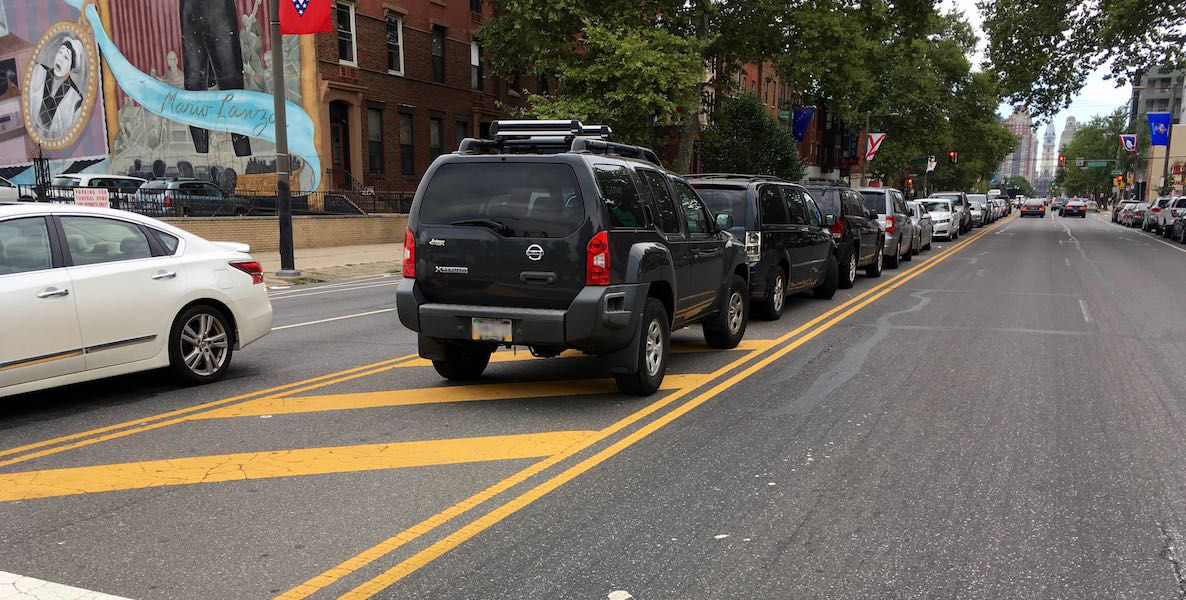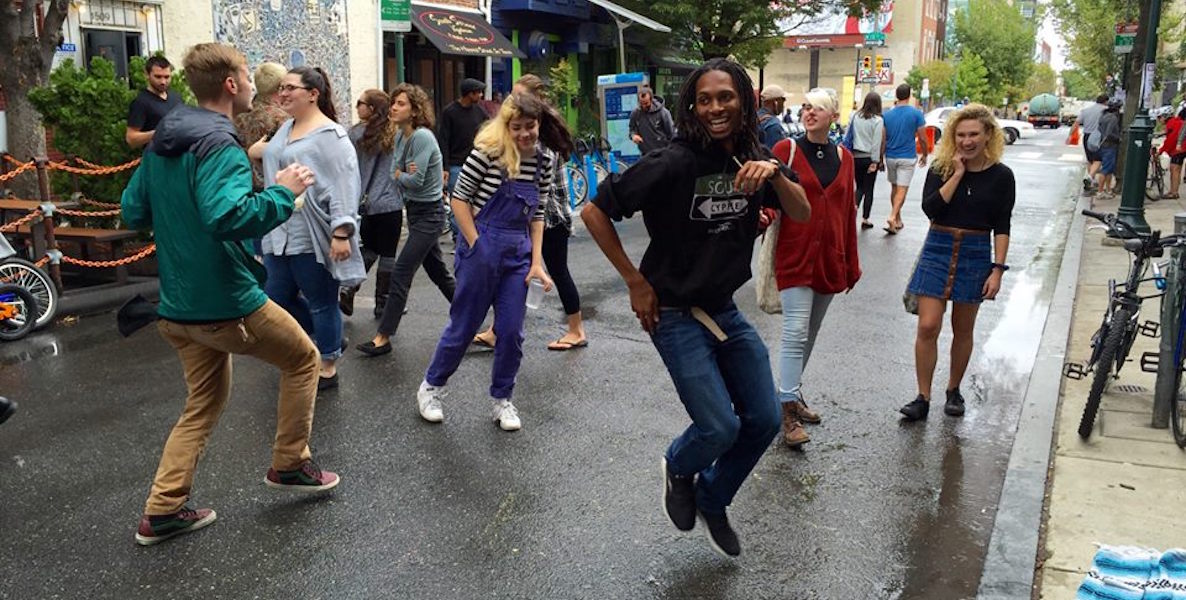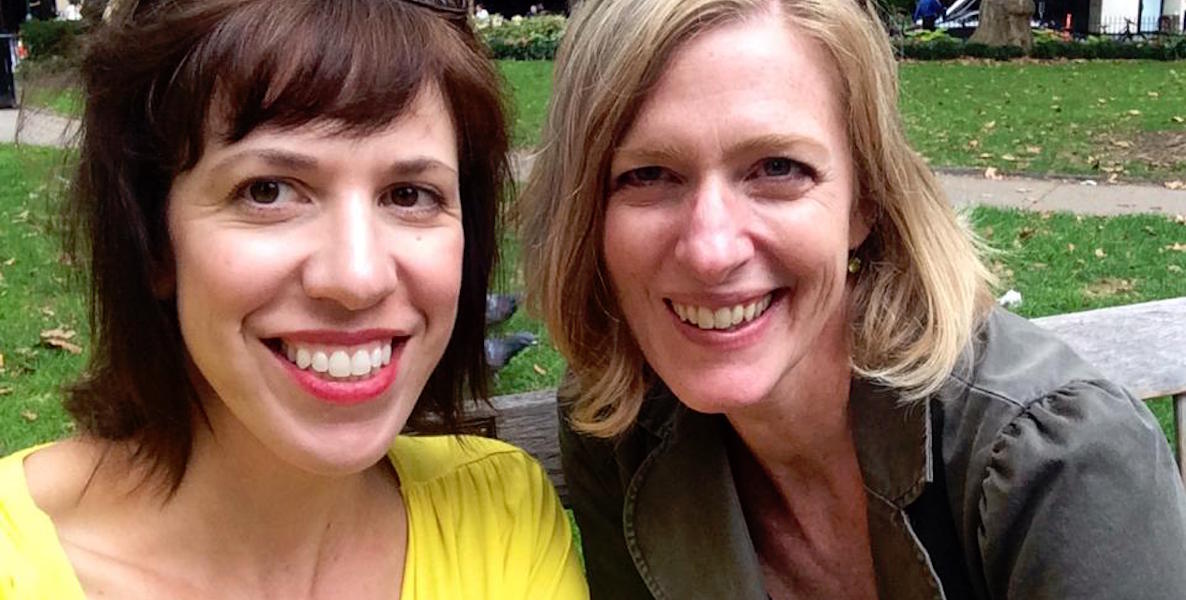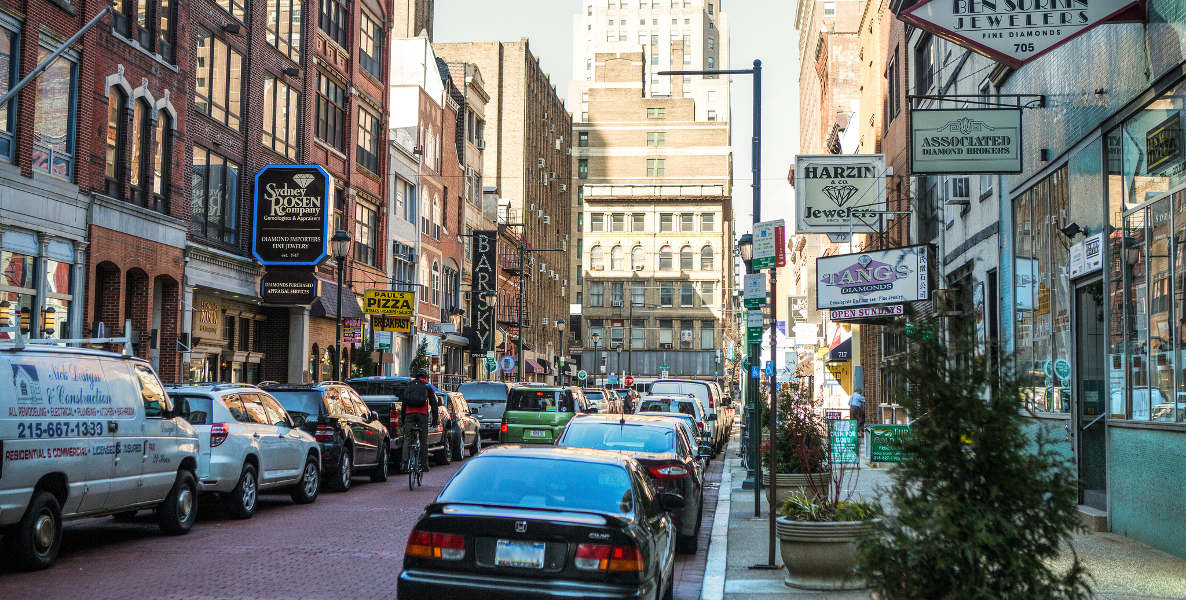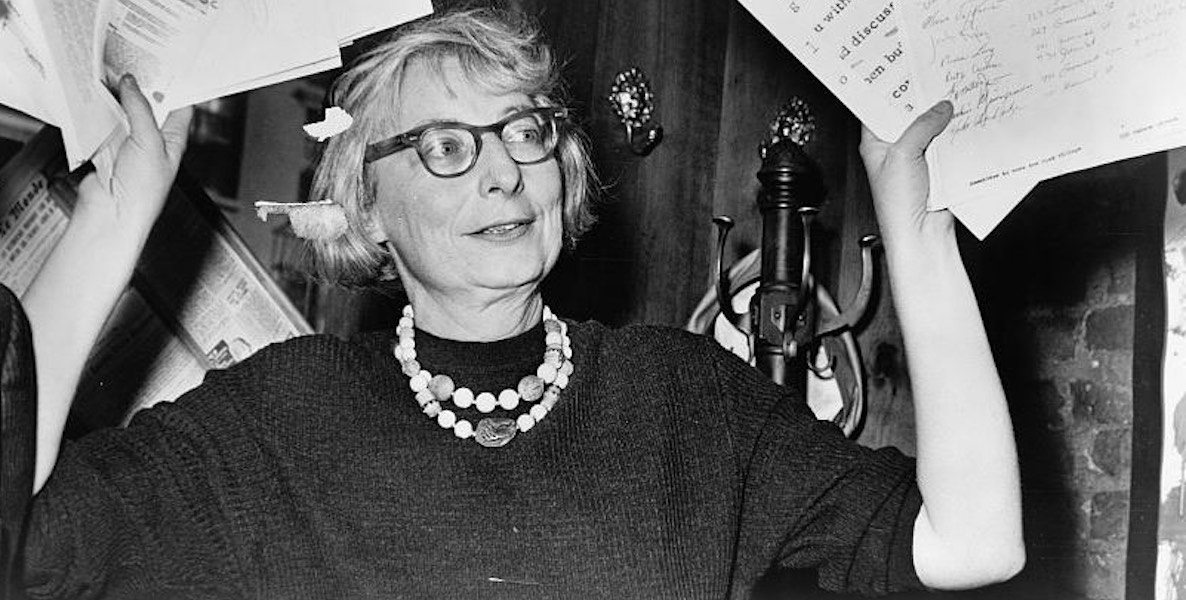At this moment in time—when our presidential election is unfathomably dispiriting, when the world is experiencing an unprecedented refugee crisis, and tens of thousands of people are being bombed in Syria—the battle over whether to demolish five buildings on Sansom Street feels quaint, even indulgent.
But those buildings, on Sansom between 7th and 8th streets, known as Jewelers Row, are symbols and touchstones, meaning much more than they appear. They’ve garnered such attention from local and national media because these buildings get at the central question of who decides how Philadelphia looks and how it is governed.
The kerfuffle began when Toll Brothers, a real estate development company that recently pivoted to producing agreeable urban condos after decades of building McMansions, announced plans to construct a 16-story residential tower by demolishing five buildings in a historic area. Toll Brothers can build the tower because the street is, like most of Center City’s core commercial streets, zoned for skyscrapers and other high-density buildings. It’s a zoning designation that never should have been applied to Jewelers Row in the first place; but short of the city admitting this mistake and retroactively applying a preservation overlay, there is nothing that can be done to protect the buildings other than hope enough public pressure will force city government to step in.
Mayor Kenney has responded to advocacy groups by saying in a statement that he “share[s] the frustration” about the situation, and urging Toll Brothers to preserve the facades of the extant buildings. Other than that, Kenney essentially said, “Carry on.”
While well-meaning, this idealized urban life becomes a kind of fetish. It’s one thing to admire the foresight and common-sense intelligence of Jane Jacobs’ praise of the small, old, and independent. It’s another to fetishize it, turning these perfect places into “comfort urbanism” to avoid thinking about the realities of the market forces at play.
So, the story should end there. But people are very angry about Jewelers Row, and perhaps precisely because we are living in such dire times, people fear that losing this little bit of the city’s physical history, and the human pace of life that goes along with it, will be one concession too many to the neoliberal, market-driven economy. Small-scale streets, historic architecture, and small businesses are what make Philly unique and gorgeous—and they are what reminds us of what it is to be human.
Indeed, it is the Jewelers Row way of life that some feel is most threatened by the project. For Inga Saffron, the Inquirer’s architecture critic, Jewelers Row is about more than the buildings, but about the businesses. These are longtime tenants, small business owners who work in collaboration with each other in a tight ecosystem. One need look only half a block away at the sterile Penn Medicine tower at 8th and Walnut streets, or Jefferson University’s encroachment on the neighborhood, to feel how architecture and livelihoods are intertwined, and how the “knowledge economy” often fails to produce engaging architecture. Removing this last bit of the manufacturing and artisan past of the city would be a shame.
But underneath the conversation about the built environment and economy is a subtler conversation about how to construct a “Goldilocks” city—one that’s not too hot and not too cold. Not so much development that it changes the character of the city; not so little development there’s no growth. Commercial corridors that are vibrant, but not overtly bourgeois. Urban-scaled Target stores, but not outlets in the Gallery. New townhouse developments, but not the ones that are too big and have parking.
This kind of commentary, found on Facebook chat rooms like UrbanPHL and in the discussion surrounding Jewelers Row, comes from people who ardently champion the “back to the city” movement, but then wring their hands when suburbanites actually do move to the city and bring their aesthetics and their values with them.
While well-meaning, this idealized urban life becomes a kind of fetish. It’s one thing to admire the foresight and common-sense intelligence of Jane Jacobs’ praise of the small, old, and independent. It’s another to fetishize it, turning these perfect places into “comfort urbanism” to avoid thinking about the realities of the market forces at play. I can see in the near future how this cohort will try to keep Starbucks and other multinational brands from poisoning Passyunk Avenue and Frankford Avenue, meanwhile only displacing the demand elsewhere. (Think of Seventh Avenue in Park Slope, which fought for its bookstores and co-ops, only to see downtown Brooklyn become yet another generic mall.)
We’d do much better as a city if we would adjust our focus from microdevelopment to the macrogovernance forces at play. Instead of whining about Jewelers Row, let’s take that energy and apply it to advocating for more equitable development writ large in the city. Let’s take on the 10-year tax abatement, which Paul Steinke, head of the Preservation Alliance, has duly noted is a major culprit behind the real estate climate in which historic, tax-paying structures—like old rowhomes and storefronts—are at a financial disadvantage to new, tax-abated properties. Adjusting, or even eliminating, the tax abatement would do much to level the playing field between old and new properties, so developers like Toll Brothers are less encouraged to demolish.
Don’t want Philly to lose its small scale? Instead of touting the major hotel projects like the SLS Lux Hotel & Residences and W and Element Hotels, let’s dive into the tax grants, credits and deals that make those projects possible. Or, as is the case of the SLS, whose site sat fallow waiting for a $20 million state grant that didn’t materialize this fall, not possible.Broad Street is a much more visible and trafficked avenue than Jewelers Row, but the level of concern from the design community over the questionable architecture on Broad Street seems entirely inadequate.
Finally, we can and should do more to ensure our streets don’t lose independent businesses, but we must also find ways to get those businesses to move beyond the small commercial corridors. Often, out-of-town developers, unfamiliar with local businesses won’t consider anything but national chains as “credit tenants” to sign multi-year leases for large retail spaces. We need our local community development financial institutions, such as Reinvestment Fund and PIDC, as well as potentially philanthropic groups to step up to the plate and guarantee loans for these businesses. Unless we find ways to help small businesses scale up and expand into larger retail spaces, developers will fill their storefronts with Santander or CVS, making those unique places like Passyunk, Frankford, and, yes, Jewelers Row, a little too precious.
Header photo by Terry Robinson via Flickr



